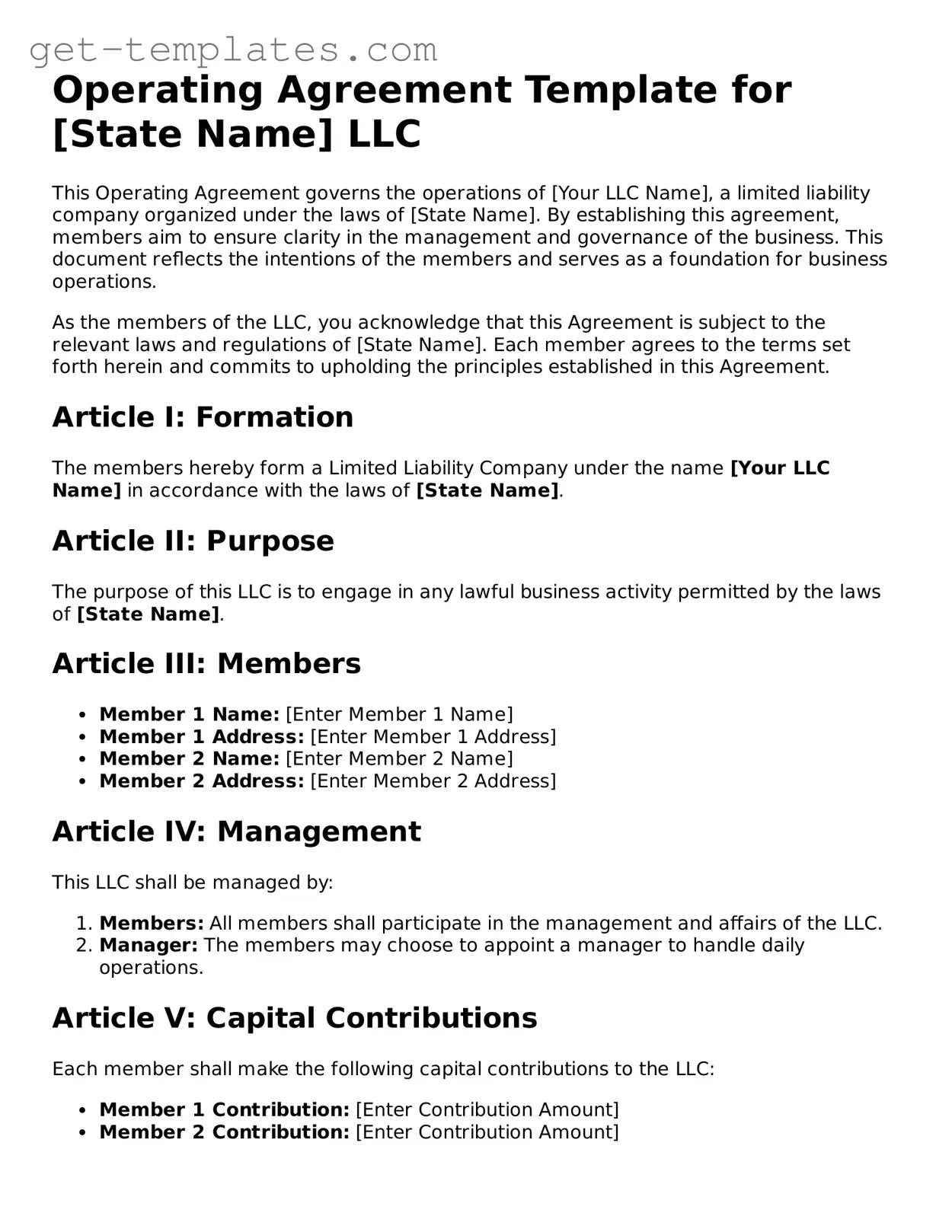Operating Agreement Template for [State Name] LLC
This Operating Agreement governs the operations of [Your LLC Name], a limited liability company organized under the laws of [State Name]. By establishing this agreement, members aim to ensure clarity in the management and governance of the business. This document reflects the intentions of the members and serves as a foundation for business operations.
As the members of the LLC, you acknowledge that this Agreement is subject to the relevant laws and regulations of [State Name]. Each member agrees to the terms set forth herein and commits to upholding the principles established in this Agreement.
Article I: Formation
The members hereby form a Limited Liability Company under the name [Your LLC Name] in accordance with the laws of [State Name].
Article II: Purpose
The purpose of this LLC is to engage in any lawful business activity permitted by the laws of [State Name].
Article III: Members
- Member 1 Name: [Enter Member 1 Name]
- Member 1 Address: [Enter Member 1 Address]
- Member 2 Name: [Enter Member 2 Name]
- Member 2 Address: [Enter Member 2 Address]
Article IV: Management
This LLC shall be managed by:
- Members: All members shall participate in the management and affairs of the LLC.
- Manager: The members may choose to appoint a manager to handle daily operations.
Article V: Capital Contributions
Each member shall make the following capital contributions to the LLC:
- Member 1 Contribution: [Enter Contribution Amount]
- Member 2 Contribution: [Enter Contribution Amount]
Article VI: Distributions
Distributions of profits and losses shall occur annually and shall be in proportion to each member's capital contribution unless otherwise decided unanimously by the members.
Article VII: Meetings
Meetings of the members may be called at any time by any member. Notice of the meeting shall be provided at least [Enter Number of Days] days in advance.
Article VIII: Amendments
This Agreement may be amended only by a written agreement signed by all members of the LLC.
Signatures
By signing below, the members confirm their agreement to the terms outlined in this Operating Agreement.
- Member 1 Signature: _____________________ Date: _____________
- Member 2 Signature: _____________________ Date: _____________
This Operating Agreement becomes effective on [Enter Effective Date].
This template provides a flexible framework that can be tailored to the specific needs of your LLC in [State Name]. Be sure to fill in the necessary information and consult with a professional if any modifications are required.

